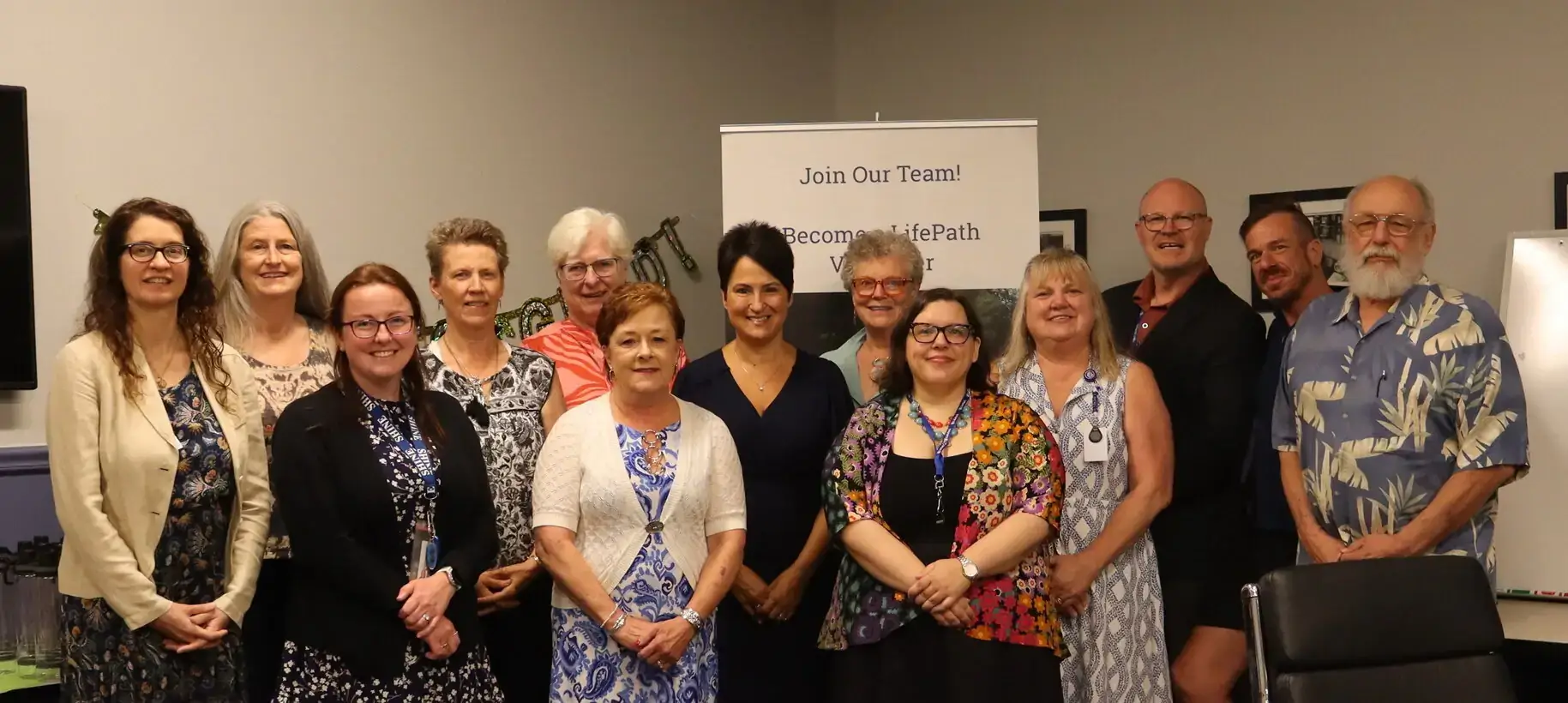Loneliness is a frequent topic of conversation at LifePath. The 2023 release of the Surgeon General’s public statement, Our Epidemic of Loneliness and Isolation: The Surgeon General’s Advisory on the Healing Effects of Social Connection and Community, confirms what we are seeing every day in our work and in our communities.
The Surgeon General’s statement distills decades of research from different disciplines and brings awareness, attention, and recommendations to this important topic. Outdated thinking tells us that loneliness is a person struggling with their feelings. In fact, loneliness is so much more. It is deeply complicated and more common than many are aware, and it has profound effects on health at the individual and societal levels.
At the individual level, numerous studies have linked loneliness to increased risk of cardiovascular disease, stroke, dementia, depression, anxiety, and premature death. We know that older individuals already struggle with these challenges, and loneliness impacts them all profoundly. At a macro level, a lack of social connection affects society with worse community outcomes in key areas such as community safety, resiliency, and decreased prosperity.
Social connection takes deliberate work and effort. This can be daunting, and our rural areas bring unique challenges, making it even more difficult to create, nurture, maintain, and reciprocate meaningful relationships.
Some folks will be celebrating holidays, and while the holidays bring joy for many, they can also be a source of stress and fuel feelings of loneliness and isolation.
To make matters worse, winter is just around the corner, and it can be a very difficult time for many people. Environmental factors such as colder temperatures, less daylight, and slippery conditions can make it difficult to get outside. Snow accumulation can be a barrier for those who can’t shovel their way out or can’t find anyone to help with this arduous task. There are fewer outdoor community activities, so folks are less likely to spontaneously bump into others while outside.
Winter can be a difficult time to maintain mental, emotional, and physical health; and emotional factors compound environmental factors. Some folks will be celebrating holidays, and while the holidays bring joy for many, they can also be a source of stress and fuel feelings of loneliness and isolation. A sense of nostalgia will remind us of loved ones who are no longer with us. Travel can be time consuming and expensive. A sense of obligation often results in forced family interactions that bring up past trauma. This is the side of the holidays that is often overlooked or diminished.
Expectations around family gatherings can be oppressive. Turning on the television brings a relentless stream of content depicting joyous families gathering for a meal or to celebrate their traditions. This is not everyone’s reality, including myself, and can lead to feelings of sadness or discontent. Judgements are made. People are manipulated into participating in ways they find unpleasant and unhealthy. Blame is placed on those who “aren’t trying hard enough” or can’t put aside differences “for just this one day” or who aren’t willing to “just keep the peace.” To cap it all off, there is considerable shame in discussing these realities. Those who have experienced these behaviors are more likely to face loneliness and isolation. I bring up these unpleasant truths from a personal perspective to encourage honest dialogue. Mostly, I want those with similar experiences to know that they are not alone, and that their feelings are valid.
What can we do individually to combat loneliness? A number of things, actually! Decide what relationships are most important to you, and set appropriate boundaries so that you control how much time and energy you spend with whom. Reach out to someone you haven’t connected with in a while. People feel good about being remembered. Schedule a get together in the new year when things are calmer. Having something to plan for, look forward to, and celebrate, supports mental health and self-worth. Pay attention to events in your community. Even in winter, many organizations and institutions plan specific events, and these are great ways to connect with others, especially for those who may feel more comfortable in a group setting than one on one. Your community center, senior center, or library will all have valuable information on what they or others are hosting. If you have specific interests or hobbies, try to find groups that cater to these activities.
You could also volunteer! Volunteerism is a great way to meet new people with similar interests and values. Studies show that volunteering improves self-image and boosts self-esteem, increases resiliency, promotes mental and emotional health, and builds long-lasting connections. Volunteers at LifePath provide essential services across twelve programs, and the connections they have made with each other are significant. As a non-profit, this is a way for us to multiply our services and provide more support to more people.
While easier said than done, it benefits us to strengthen our connections and relationships. These individual relationships are an investment in both our individual and collective wellness. They can help us live healthier, more productive, and more fulfilled lives. Small steps can make a big difference. Simply answering a call or text offers the opportunity to connect. Make plans and stick to them. Acknowledge others while out and about. Smile or wave; it could be the beginning of a conversation. And do not hesitate to reach out for help, either from your support system or from outside professionals. There is power in authentically expressing yourself and acknowledging your needs.
While loneliness and isolation represent real and tangible threats to our health and wellness, we are not powerless. Taking small steps can add up to big differences.





